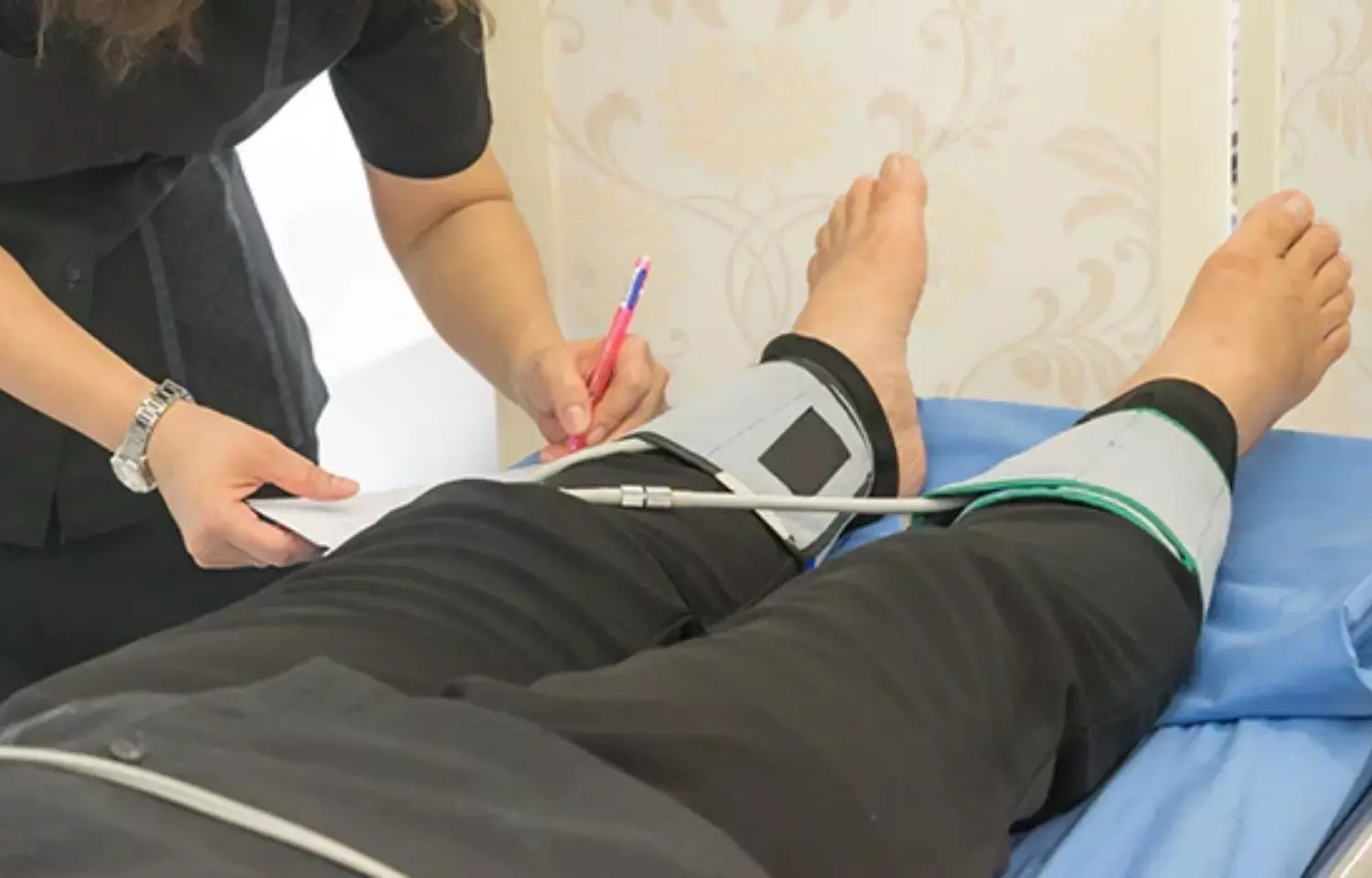- Home
- Medical news & Guidelines
- Anesthesiology
- Cardiology and CTVS
- Critical Care
- Dentistry
- Dermatology
- Diabetes and Endocrinology
- ENT
- Gastroenterology
- Medicine
- Nephrology
- Neurology
- Obstretics-Gynaecology
- Oncology
- Ophthalmology
- Orthopaedics
- Pediatrics-Neonatology
- Psychiatry
- Pulmonology
- Radiology
- Surgery
- Urology
- Laboratory Medicine
- Diet
- Nursing
- Paramedical
- Physiotherapy
- Health news
- Fact Check
- Bone Health Fact Check
- Brain Health Fact Check
- Cancer Related Fact Check
- Child Care Fact Check
- Dental and oral health fact check
- Diabetes and metabolic health fact check
- Diet and Nutrition Fact Check
- Eye and ENT Care Fact Check
- Fitness fact check
- Gut health fact check
- Heart health fact check
- Kidney health fact check
- Medical education fact check
- Men's health fact check
- Respiratory fact check
- Skin and hair care fact check
- Vaccine and Immunization fact check
- Women's health fact check
- AYUSH
- State News
- Andaman and Nicobar Islands
- Andhra Pradesh
- Arunachal Pradesh
- Assam
- Bihar
- Chandigarh
- Chattisgarh
- Dadra and Nagar Haveli
- Daman and Diu
- Delhi
- Goa
- Gujarat
- Haryana
- Himachal Pradesh
- Jammu & Kashmir
- Jharkhand
- Karnataka
- Kerala
- Ladakh
- Lakshadweep
- Madhya Pradesh
- Maharashtra
- Manipur
- Meghalaya
- Mizoram
- Nagaland
- Odisha
- Puducherry
- Punjab
- Rajasthan
- Sikkim
- Tamil Nadu
- Telangana
- Tripura
- Uttar Pradesh
- Uttrakhand
- West Bengal
- Medical Education
- Industry
Metformin Fails to Improve Walking Performance in PAD Patients: Study

A new study published in the Journal of the American Medical Association found that among individuals with peripheral artery disease (PAD) without diabetes, metformin showed no improvement in 6-minute walk distance after 6 months compared with placebo, indicating no benefit for walking performance.
The study was conducted across 4 U.S. medical centers, aimed to test whether metformin could enhance exercise capacity in non-diabetic PAD patients. This research cited the biological actions of metformin like activating AMP-activated protein kinase (AMPK), reducing oxidative stress, and stimulating endothelial nitric oxide synthase (eNOS) as mechanisms that might potentially improve blood vessel function and walking endurance.
From May 2017 to February 2025, a total of 202 participants aged 50 years and older were enrolled which represented 95% of the planned study population. The participants were randomly assigned to receive either metformin (n=97) or a placebo (n=105) for 6 months. Follow-up assessments were completed by 179 participants (89%) by August 2025.
The primary outcome measure was the change in 6-minute walk distance, which is a widely accepted test to evaluate functional walking ability in PAD patients. A clinically meaningful improvement would typically range between 8 to 20 meters.
However, results showed no significant difference between the two groups. The participants in the metformin group saw their average distance drop slightly from 358.6 meters to 353.2 meters, a decline of 5.4 meters. Those in the placebo group similarly declined from 359.8 meters to 354.5 meters, a 5.3-meter decrease.
The adjusted difference between the 2 groups was only 1.1 meters (95% confidence interval, −16.3 to 18.6 meters; P = .90), which indicated no statistically meaningful benefit from metformin. Secondary measures (treadmill walking times, Walking Impairment Questionnaire scores (for distance and speed), Short-Form 36 physical functioning score, and brachial artery flow-mediated dilation) showed no improvement with metformin use when compared to placebo.
In terms of safety, serious adverse events were uncommon and comparable between groups: 3.1% in the metformin arm versus 1.9% in the placebo arm, mostly due to cardiovascular incidents. The most frequent non-serious side effects included indigestion or stomach upset (65% for metformin vs. 41% for placebo) and headaches (37% vs. 50%). Overall, the findings clearly demonstrate that metformin does not enhance walking performance or vascular function in PAD patients without diabetes.
Source:
McDermott, M. M., Domanchuk, K. J., Tian, L., Zhao, L., Zhang, D., Bazzano, L., Berceli, S., Criqui, M. H., Ferrucci, L., Guralnik, J. M., Leeuwenburgh, C., Ho, K. J., Ismaeel, A., Kibbe, M. R., Korcarz, C., Kosmac, K., Lloyd-Jones, D., Peterson, C. A., Stein, J. H., … Polonsky, T. S. (2025). Metformin to improve walking performance in lower extremity peripheral artery disease: The PERMET randomized clinical trial: The PERMET randomized clinical trial. JAMA: The Journal of the American Medical Association. https://doi.org/10.1001/jama.2025.21358
Neuroscience Masters graduate
Jacinthlyn Sylvia, a Neuroscience Master's graduate from Chennai has worked extensively in deciphering the neurobiology of cognition and motor control in aging. She also has spread-out exposure to Neurosurgery from her Bachelor’s. She is currently involved in active Neuro-Oncology research. She is an upcoming neuroscientist with a fiery passion for writing. Her news cover at Medical Dialogues feature recent discoveries and updates from the healthcare and biomedical research fields. She can be reached at editorial@medicaldialogues.in
Dr Kamal Kant Kohli-MBBS, DTCD- a chest specialist with more than 30 years of practice and a flair for writing clinical articles, Dr Kamal Kant Kohli joined Medical Dialogues as a Chief Editor of Medical News. Besides writing articles, as an editor, he proofreads and verifies all the medical content published on Medical Dialogues including those coming from journals, studies,medical conferences,guidelines etc. Email: drkohli@medicaldialogues.in. Contact no. 011-43720751


